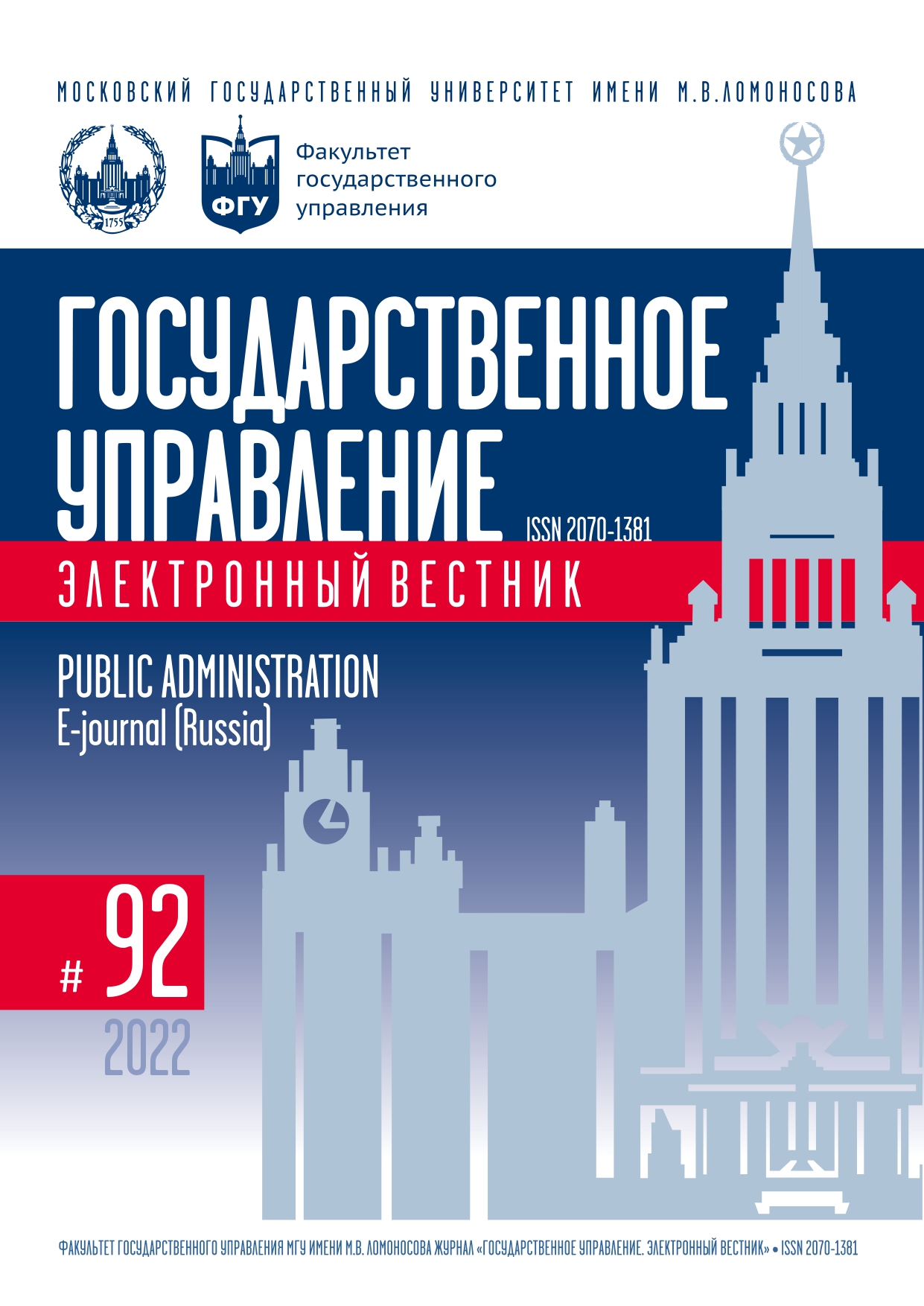Role of State in Improving Internet Infrastructure in Universities to Support Combined Learning Formats
Keywords:
Digital ecosystem, learning systems, higher education, public policy, combined learning format, distance learning technologiesAbstract
The ongoing global digitalization actualizes the development of a digital ecosystem of educational organizations capable of supporting combined learning formats. The COVID-19 pandemic has become a catalyst for the digital transformation of universities and their active entry into foreign platforms, but in the face of new sanctions pressure, many universities risk being left without mastered technological platforms, information databases and returning to less effective teaching. So, this article attempts to assess the role of the government in forming and developing the Internet infrastructure of universities. The combined format of education, which has received full-scale development over the past two years, has put the development of educational information technologies at the forefront. On the basis of system analysis, the historical-logical method and based on the expertise of the authors, there were formulated the main challenges and lessons of the first large-scale experience of distance teaching under pandemic restrictions which affected all educational organizations. It was revealed that the key problem of this period was the heterogeneity of universities in terms of the degree of digital maturity and the level of development of the Internet infrastructure, as well as the high level of differentiation of educational information technologies used, primarily foreign ones. The ongoing restrictions on access to these resources will intensify the development of a unified national information educational ecosystem, for which the main vectors of state policy aimed at overcoming external challenges and threats have been formulated. There is a leading experience of Lomonosov Moscow State University on the development of an educational platform for various areas of continuous distance education, discussed in this article. The state policy measures proposed in the article can contribute to the achievement of digital maturity in the education industry, improve the quality of a higher education and will contribute to the development of domestic manufacturers of IT equipment and software.
References
Аганбегян А.Г. Новая Россия: 30 лет без экономического роста // Научные труды Вольного экономического общества России. 2021. № 6. С. 34–81. DOI: 10.38197/2072-2060-2021-232-6-34-81
Демченко С.А., Соколова Д.Ю. Университет как часть инновационной цифровой экосистемы страны // Управление экономическими системами: электронный научный журнал. 2019. № 10 (128). URL: https://elibrary.ru/item.asp?id=42257159
Климов А.А., Заречкин Е.Ю., Куприяновский В.П. О цифровой экосистеме современного университета // Современные информационные технологии и ИТ-образование. 2019. Т. 15. № 4. С. 815–824. DOI: 10.25559/SITITO.15.201904.815-824
Кудрин А.Л., Кнобель А.Ю. Бюджетная политика как источник экономического роста // Вопросы экономики. 2017. № 10. С. 5–26. DOI: 10.32609/0042-8736-2017-10-5-26
Лапидус Л.В. Барометр турбулентности цифровой среды и стратегии цифровой трансформации в образовании // Теория и практика проектного образования. 2020. № 3 (15). С. 7–10.
Неборский Е.В. Цифровая экосистема как средство цифровой трансформации университета // Мир науки. Педагогика и психология. 2021. № 4. DOI: 10.15862/02PDMN421
Сидорова А.А. Сотрудничество университетов и бизнеса: трансформация роли государства в условиях цифровой экономики // Эффективное управление: научный альманах памяти профессора М.И. Панова. М.: Галлея-Принт, 2021. С. 80–85.
Goh C., Hii P., Tan O., Rasli A. Why Do University Teachers Use E-Learning Systems? // International Review of Research in Open and Distance Learning. 2020. Vol. 21. Is. 2. P. 136–155. DOI: 10.19173/irrodl.v21i2.3720
Kamsker S., Janschitz G., Monitzer S. Digital Transformation and Higher Education: A Survey on the Digital Competencies of Leaners to Develop Higher Education Teaching // International Journal for Business Education. 2020. Vol. 160. P. 22–41. DOI: 10.30707/IJBE160.1.1648090946.696630
Mikheev A., Serkina Y., Vasyaev A. Current Trends in the Digital Transformation of Higher Education Institutions in Russia // Education and Information Technologies. 2021. Vol. 26. P. 4537–4551. DOI: 10.1007/s10639-021-10467-6
Pushkar D, Deepak P. Distance Learning in Higher Education during Pandemic: Challenges and Opportunities // The International Journal of Indian Psychology. 2020. Vol. 8. Is. 2. P. 43–46. DOI: 10.25215/0802.204
Santos H., Batista J., Marques R. Digital Transformation of Higher Education: The Use of Communication Technologies by Students // Procedia Computer Science. 2019. Vol. 164. P. 123–130. DOI: 10.1016/j.procs.2019.12.163

